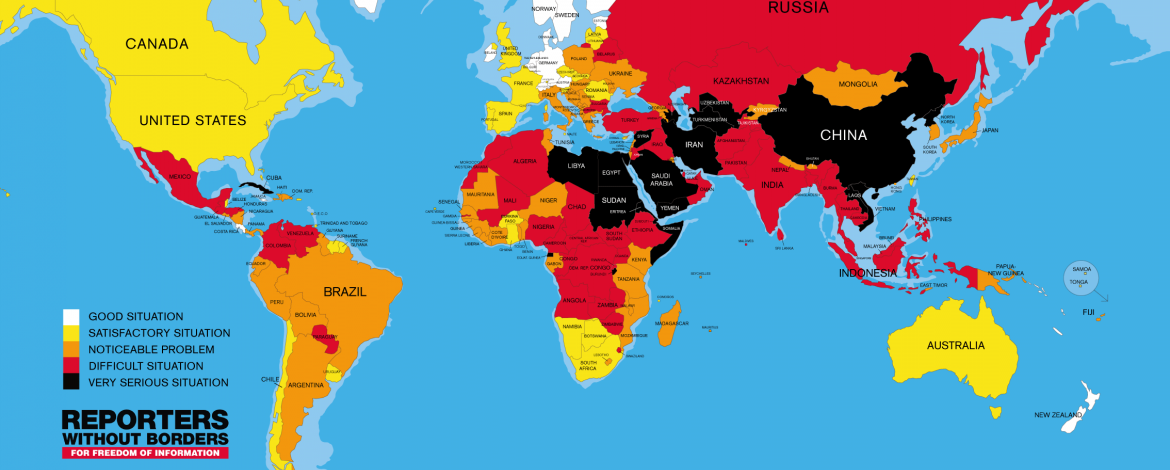On 9 January 2018, the Committee to Protect Journalists (CPJ) called for the immediate release of Saudi journalist Saleh al-Shehi, a columnist for Al-Watan who regularly reported on topics including the government’s economic policies and its treatment of expat workers. Al-Shehi was reportedly detained after accusing the Saudi royal court of corruption during an appearance on the Rotana Channel’s show Yahalla on 8 December 2017.
Al-Shehi joins at least seven other journalists currently imprisoned in Saudi Arabia, including Nadhir al-Majid. Al-Majid was charged with “slandering the ruler and breaking allegiance with him” on 18 January 2017. The charge concerned a 2011 opinion piece published in Al-Mothaqaf, in which al-Majid supported the right to protest amid calls for a “Saudi Day of Anger,” according to Human Rights Watch. Al- Majid was tried before the Specialized Criminal Court, a court that was created for trying terrorist suspects and is notorious for its lack of fair trials. Al-Majid is currently serving a seven year prison sentence.
Similar to al-Majid, Wajdi al-Ghazzawi was also tried by the Specialized Criminal Court back in 2014. He was sentenced to 12 years in prison for “harming the nation’s image.” Owner of the religious satellite broadcaster Al-Fajr Media Group, al-Ghazzawi hosted seven episodes of a show called Fadfadah, in which he criticized the Saudi government and accused it of widespread corruption. According to the United Nations Refugee Agency (UNHCR), al-Ghazzawi waged a temporary hunger strike in 2015 to protest prison conditions, including lack of medical care. His whereabouts and the state of his health are currently unknown.
In addition to these journalists, Saudi Arabia has detained several activists and public figures in past months, including billionaire investor Prince Alwaleed bin Talal and human rights defenders Abdulaziz al-Shubaily and Issa al-Hamid. The CPJ attributes recent arrests to an expanding crackdown on dissent in the kingdom by Crown Prince Mohammad bin Salman in order to consolidate power.
The arrests of journalists and coordinated detentions of dissidents have contributed to the kingdom’s poor atmosphere for free expression. According to the 2017 World Press Freedom Index, Saudi Arabia ranks 168 out of 180 countries. Reporters Without Borders (RSF) notes that Saudi authorities “tolerate neither political parties, unions, nor human rights groups, and the level of self-censorship is extremely high. […] Blasphemy, insulting religion, inciting chaos, and defaming the king and the state are the most frequent charges brought against those who show a desire to report the truth.”
The Saudi government consistently, and in a gross and systematic manner, continues to violate its citizens’ right to free expression. The government must immediately and unconditionally release al-Shehi, al-Majid, and al-Ghazzawi, along with all others unjustly imprisoned for exercising their freedoms. It should further accede to the relevant international treaties protecting and promoting free expression and fundamental freedoms.
Monica Zuraw Advocacy Intern at ADHRB





